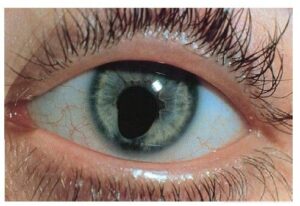
Anushka Super Speciality Eye Hospital
Call: 90044 44422 / 99213 44422 | Timings : 8.30 a.m to 5.30 p.m (Mon-Sat) | Add: Shri Swami Samarth Soc, Kaneri Dhamankar Naka, Bhiwandi




Accredited for Quality Care
Understanding Proptosis: Causes, Symptoms, and How to Manage Bulging Eyes
anushka
11 June 2025
Introduction
Have you ever noticed someone whose eyes seem to protrude forward more than usual? Or perhaps you’ve experienced a feeling of dryness, discomfort, or a change in your vision that made you wonder, “Is something wrong with my eyes?” Proptosis, often referred to as exophthalmos, is a condition where one or both eyeballs bulge outward from the eye socket. While it might sound alarming, understanding its causes, symptoms, and management can empower you to take action—or even help a loved one. Let’s dive into this eye-opening topic.
What is Proptosis?
Proptosis occurs when the eyeball shifts forward due to swelling, inflammation, or a mass behind the eye. This displacement can affect appearance, vision, and overall eye health. It’s not just a cosmetic concern; untreated proptosis may lead to complications like corneal damage or vision loss.
Types of Proptosis
Proptosis isn’t a one-size-fits-all condition. Its causes vary, and identifying the type is key to effective treatment:
- Thyroid Eye Disease (TED):
- Cause: Linked to autoimmune disorders like Graves’ disease, where the immune system attacks tissues around the eyes.
- Features: Bilateral proptosis (both eyes), eyelid retraction, and redness. Common in women aged 30–50.
- Congenital Proptosis:
- Cause: Rare genetic conditions (e.g., Crouzon syndrome) affecting skull development.
- Features: Present at birth, often with other facial abnormalities.
3. Traumatic Proptosis:
- Cause: Injury to the eye socket (e.g., fractures, bleeding).
- Features: Sudden bulging, pain, bruising. Requires urgent care.
4. Inflammatory/Infectious Proptosis
- Cause: Infections (e.g., sinusitis, orbital cellulitis) or autoimmune inflammation.
- Features: Redness, fever, tenderness.
5.Vascular Proptosis
- Cause: Blood vessel abnormalities (e.g., aneurysms, varicose veins).
- Features: Intermittent bulging worsened by straining.
6.Neoplastic Proptosis
- Cause: Tumors (benign or cancerous) in the eye socket.
- Features: Gradual protrusion, vision changes.
Signs and Symptoms: When to Seek Help
Proptosis isn’t always obvious at first. Watch for these red flags:
- Visible Bulging: One or both eyes protruding forward.
- Dryness and Irritation: Difficulty closing eyelids fully, leading to dry, gritty eyes.
- Double Vision: Misaligned eyes due to muscle swelling.
- Pain or Pressure: Especially when moving the eyes.
- Vision Changes: Blurriness, light sensitivity, or loss of vision (a medical emergency).
- Redness and Swelling: Around the eyes or eyelids.
If you notice sudden bulging, severe pain, or vision loss, seek immediate medical attention.
Managing Proptosis: Treatment Options
Treatment depends on the underlying cause. Here’s a breakdown:
- Thyroid Eye Disease (TED):
- Steroids: Reduce inflammation (e.g., prednisone).
- Immunosuppressants: For severe cases.
- Radiation Therapy: Targets swollen tissues.
- Surgery: Orbital decompression to create space for the eyeball.
- Infections or Inflammation:
- Antibiotics/Antivirals: For bacterial or viral infections.
- Warm Compresses: Ease discomfort from orbital cellulitis.
- Trauma:
- Surgery: Repair fractures or drain blood.
- Pain Management: NSAIDs or prescribed medications.
- Tumors or Vascular Issues:
- Surgery/Radiation: Remove or shrink masses.
- Embolization: Block abnormal blood vessels.
General Supportive Care
- Artificial Tears: Lubricate dry eyes.
- Prism Glasses: Correct double vision.
- Elevated Sleep: Reduce nighttime swelling.
Frequently Asked Questions
1.Is proptosis the same as exophthalmos?
Yes! “Proptosis” and “exophthalmos” both describe eyeball protrusion. However, “exophthalmos” is often used for thyroid-related cases.
2.Can proptosis be cured?
It depends on the cause. Thyroid-related proptosis may improve with treatment, while trauma or tumors might require surgery. Early diagnosis is key.
3.Is proptosis dangerous?
Untreated, it can damage the cornea or optic nerve. Always consult a doctor for sudden or worsening symptoms.
4.Can I prevent proptosis?
Not always, but managing thyroid disorders and protecting your eyes from injury reduces risks.
5.Will I lose my vision?
Vision loss is rare with prompt treatment. However, delays in severe cases (e.g., infections) can be risky.
6.What kind of doctor treats proptosis?
Ophthalmologists, endocrinologists (for thyroid issues), or ENT specialists, depending on the cause.
Conclusion
Proptosis is more than a cosmetic issue—it’s a window into your overall health. Whether it’s linked to thyroid disease, an injury, or an infection, timely care can protect your vision and quality of life. If you or someone you know experiences bulging eyes, don’t ignore it. Reach out to a healthcare provider to uncover the root cause and explore solutions.
Recent Posts


